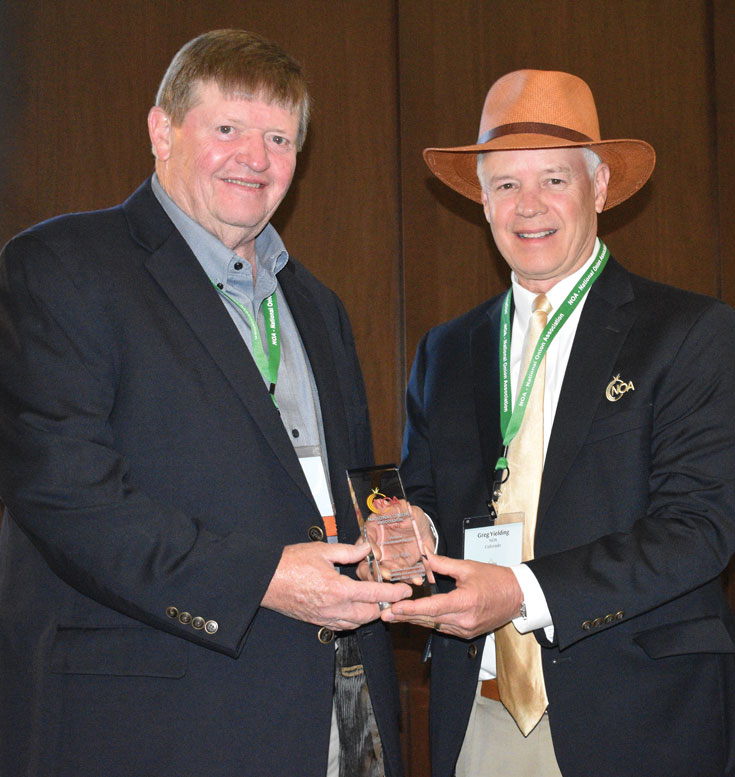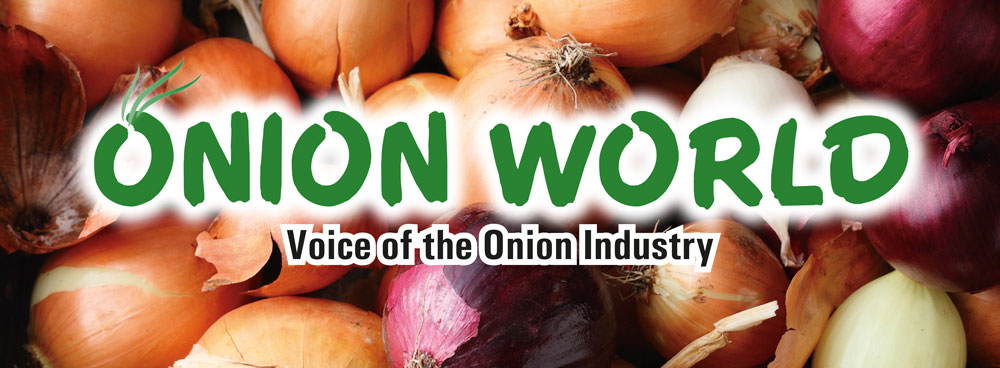|
Click to listen to this article
|
Kay Riley, Retired General Manager, Snake River Produce Company

Kay Riley, a familiar face in the onion industry for 43 years, has traded in the packing shed for the golf course. Riley retired from Snake River Produce Company as general manager on June 1.
Riley and four onion growers founded the company in Nyssa, Oregon, in 1999. Riley’s resume also includes a term as president of the National Onion Association and involvement with the Idaho-Oregon Fruit and Vegetable Association.
Onion World caught up with Riley in his first few weeks of retirement to learn about his past career and future plans.
Let’s talk about some changes in your 43 years in the onion business.
It’s been dramatic, of course, over a 43-year period. Back when I first started in onion production, very little of the harvest was done mechanically; virtually all of it is done mechanically now. Many of the onions were hand-topped and put in windrows by people, and there were armies of fieldworkers that topped the onions into burlap bags or into windrows. And they stored onions in sacks or bins. On the production side, in 1979, there was a lot less production. The growing practices have increased dramatically, and we have much higher yields today than we had back in those days.
Tell us about one big success you had in your career.
Being involved in the National Onion Association when FSMA (Food Safety Modernization Act) was passed, the water rule came out that said that if you exceeded the recreational water quality standard, which is around 125 parts per million of E. coli, you either had to treat your water or quit using it. Of course, we’re in a dry, arid desert community, and often our water exceeds that recreational water quality. So we went to work, and we were very active in conjunction with the National Onion Association and the Idaho-Eastern Oregon Onion Committee, which did research, and the Idaho-Oregon Fruit and Vegetable Association. We attended hearings with the FDA, we made comments, and eventually even had the deputy director of the FDA here for a tour and taught him how to set siphon tubes. Ultimately, we got them to rescind the original water rule and reconsider it. And still after 12 years now, they still haven’t finalized the water rule. But nevertheless, through all that, we have not had issues with onions in the past, and they’ve come to accept that through cultural practices, our irrigation water is safe to use.
What’s on your bucket list?
I’ve enjoyed life as I’ve gone through life. One of the things I do is go fishing in Alaska every year. So that was once on my bucket list, but it’s still my bucket list. I want to travel more and see family. I have a son in Boston and a daughter in Jacksonville, Florida, a son in Utah and a daughter in Star, Idaho. I would like to spend a little more time with them.
How do you personally define success, and have you achieved it in your life?
I feel successful in that I think Snake River Produce proved to be very successful. I had initially four very high quality individuals as partners, and we formed an organization that was profitable for them and for me. We’ve expanded and changed in time and the partners have changed. But to associate with good people and to be able to hold your head up high, I’m far from being rich, but I’m rich enough.
What is your personal mantra or motto?
I would like to be as good a person as my father was. I say I would like to be, which is a process that is ongoing. But he was kind and wise and led. I’ve never really thought about having a mantra, but I have thought of following the example of his and other people’s leadership.
What’s your best advice for growers today?
I would like to see us plunge less as far as being more consistent in production. Last year, we had a very good marketing year. That was a result of terrible weather and a lot of poor crop circumstances. I think if we were a little more disciplined in the amount that we try to produce, we could probably assure ourselves of better marketing conditions every year. I can’t really blame people, but when we dive in and plant more than we have a marketing plan for, then we have overproduction and everybody suffers as a result of that.
To hear more of Riley’s reflections, check out Episode 19 of TheOnionPodcast.com.

